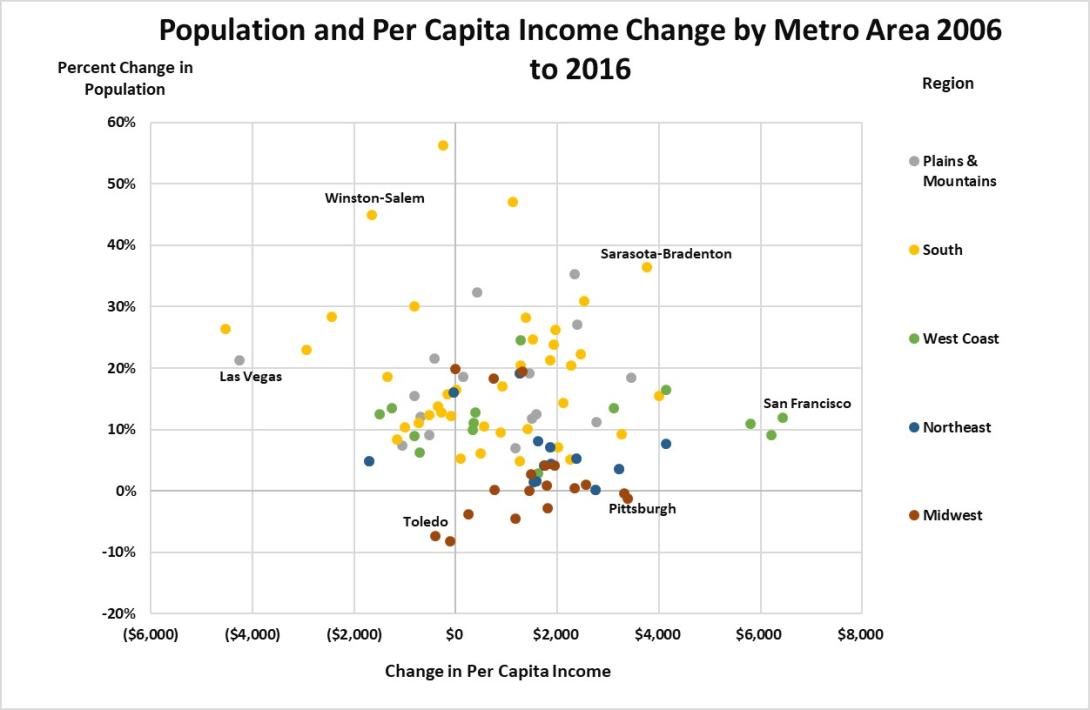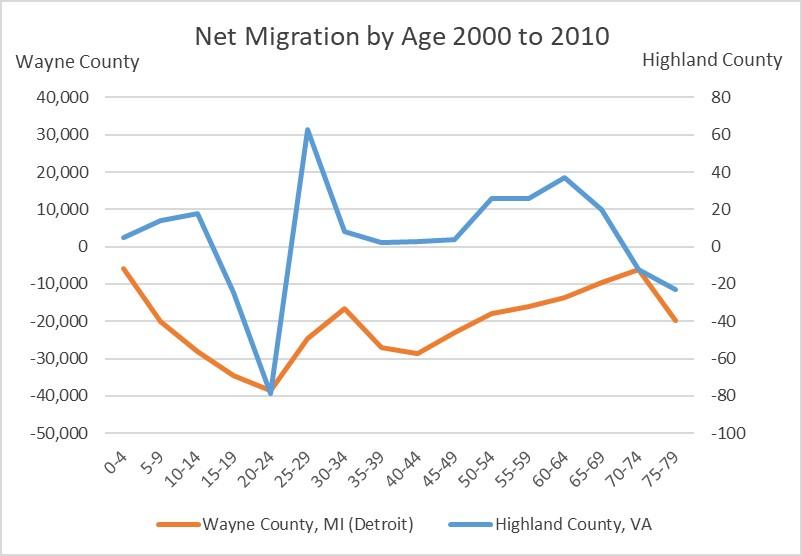Is population decline bad?
Soon after Mike Duggan was elected Mayor of Detroit in 2013, a city that has lost over half its population since 1950, he stated that: “the single standard a mayor should be defined on is whether the population of the city is going up or going down.” Since Duggan’s election, Detroit’s unemployment rate has been nearly halved, while its economy has grown faster than the country overall. Today, Detroit’s gross domestic product is the highest it has been since the 1990s, when the city’s population was 30 percent larger. Yet Detroit’s population has continued declining each year since Duggan’s election.

While Virginia’s population trends are quite different than in Detroit, much of the Commonwealth is also experiencing population decline with the majority of its counties losing population since 2010, according to the 2017 population estimates. As a result, discussions about population decline have become more prevalent in Virginia, often with the presumption that population loss indicates a larger problem within a community.
A number of studies in the past few decades have shown that Detroit’s recent trend of economic growth along with a shrinking population is not unique. Over the past ten years, both the Buffalo and Pittsburgh Metro areas experienced population decline while their per capita income levels rose more than some metro areas with the fastest growing populations in the country, including Orlando and Phoenix. A Brookings Institute study of the 100 largest U.S. metro areas found that the correlation between population and economic growth was weak and in some cases negative, such as in Buffalo and Pittsburgh. Similarly, a global study by MIT and World Bank researchers found that there was little correlation between a country’s population growth and GDP per capita growth.

Even within Virginia, there are a number of communities that have experienced long term population decline while their economies continued to grow. Highland County, located on Virginia’s western border, has, like Detroit, lost over half its population during the 20th century. But during the past few decades, income levels in Highland and a number of other rural Virginia counties with declining populations have risen faster than in Virginia overall. Many of the same counties have both the lowest local tax rates and highest fiscal strength ratings in Virginia.
Though there are some surprising similarities between Highland County and Detroit, their populations are declining for quite different reasons. Detroit’s population decline has been entirely caused by more people of every age group moving out of the city than into it every decade since the 1950s. Despite Detroit’s recent economic growth, the city’s population continues to decline because its poverty and unemployment rates remain much higher than in neighboring communities, where most of its residents are moving. Highland County, on the other hand, continues to experience an out flux of its young adults while attracting an even larger number of retires and middle aged families. But the inflow of older adults and the scarcity of young adults means that deaths have consistently outnumbered births in Highland County for decades, shrinking its population. While the factors causing Detroit’s population decline indicate that significant problems remain in the city, it is harder to determine whether Highland County’s population decline, which is a result of it being more attractive to older adults, indicates that serious problems exist within the county.

No matter what is causing population decline, governments usually fear a shrinking population because a dwindling tax base will force them to restructure the services they deliver and cut back on projects. In a representative government, population decline also means less political clout: Virginia’s recent slowdown in population growth has likely removed the possibility of the Commonwealth receiving an extra congressional seat after the 2020 Census. Most people care less about increasing political clout or which department provides a service and more about factors that improve their quality life such as jobs, affordable housing, school quality, traffic and greenspace. Many of these factors do not correlate with population growth and, in many cases, they correlate negatively.
In the coming years, population change is only expected to become more varied within Virginia: many communities will experience population decline while much of the Commonwealth’s population growth will be concentrated in a few metro areas. To understand if population decline indicates a larger problem, communities will need to take a closer look at the factors causing the decline.


